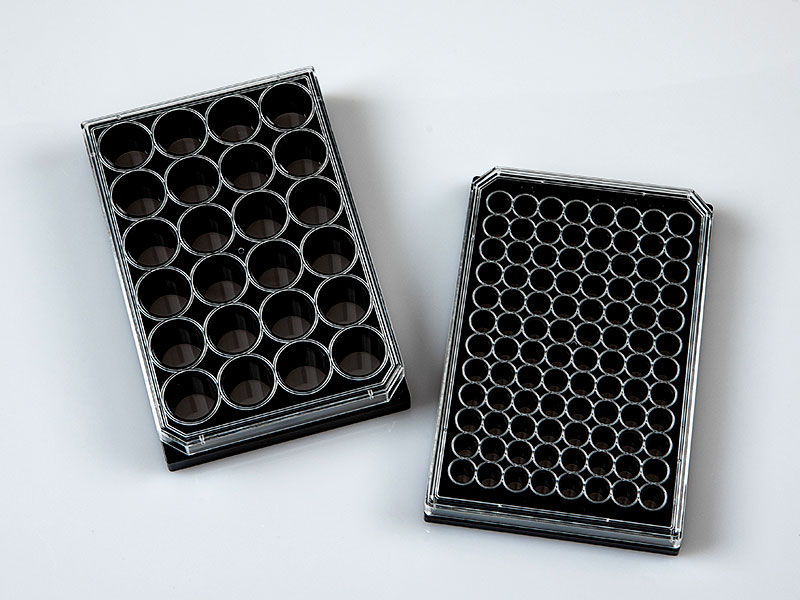Are polystyrene microplates compatible with different types of assays?
Polystyrene microplates serve as indispensable tools in modern laboratory settings, offering compatibility with a diverse array of assays crucial to biological and biomedical research. Their versatility stems from unique properties that cater to various detection methods, making them a preferred choice for researchers across disciplines.
Fluorescence Assays
Polystyrene microplates are particularly suited for fluorescence-based assays due to their low autofluorescence and excellent optical clarity. These properties minimize background interference, crucial for detecting fluorescent signals emitted by labeled molecules or cells. Researchers rely on polystyrene microplates to enhance the sensitivity and accuracy of fluorescence measurements in applications ranging from gene expression studies to protein quantification assays.
Luminescence Assays
For luminescence assays, including chemiluminescence and bioluminescence, polystyrene microplates are available in white variants. These microplates maximize the reflection of luminescent signals, thereby optimizing assay sensitivity by minimizing background noise. This makes them ideal for detecting low-level light emissions, essential in drug discovery, enzymatic assays, and studying cellular pathways.
Absorbance and Colorimetric Assays
Polystyrene microplates are compatible with absorbance and colorimetric assays, where the measurement of light absorption or color changes indicates the presence or concentration of substances. Their consistent optical properties ensure reliable and reproducible results in enzyme kinetics studies, toxicity screenings, and various biochemical analyses.

Enzyme-Linked Immunosorbent Assays (ELISA)
In ELISA assays, which detect and quantify specific proteins or antibodies, polystyrene microplates provide a stable platform for immobilizing capture molecules. Their flat, hydrophobic surface facilitates optimal binding of biomolecules, ensuring precise measurement of antigen-antibody interactions critical in diagnostics, vaccine development, and immunology research.
Cell-based Assays
Polystyrene microplates are extensively used in cell culture and cell-based assays due to their ability to support cell adhesion, proliferation, and experimental manipulation. They are essential tools in assessing cell viability, proliferation rates, cytotoxicity of compounds, and investigating cellular responses to drugs or environmental factors. Researchers appreciate their consistent performance in maintaining cell integrity and providing a conducive environment for cellular studies.
High-Throughput Screening (HTS)
In the realm of high-throughput screening, Polystyrene microplates are integral to automated workflows. Their compatibility with robotic liquid handling systems ensures rapid and efficient screening of large compound libraries for drug discovery, toxicity profiling, and identifying potential therapeutic agents. The standardized well format and robust construction of polystyrene microplates support the reproducibility and scalability required in high-throughput assays.In conclusion, polystyrene microplates stand out as versatile and reliable tools compatible with a wide range of assays critical to scientific research and biomedical applications. Whether used for fluorescence, luminescence, absorbance, ELISA, cell-based studies, or high-throughput screening, these microplates consistently deliver superior performance. Researchers benefit from their optical clarity, low background interference, and ease of integration into both manual and automated laboratory workflows. As technology advances and research demands evolve, polystyrene microplates continue to play an essential role in advancing scientific discoveries and improving our understanding of biological systems.
For more information, please call us at +86-0571-87993109 or email us at hzbioland@126.com.
Aseptic vacuum filters, like Bioland™ disposable vacuum filtration units, are designed for high-effi...
Whether used in the food hygiene industry, water monitoring, or research labs, selecting the right m...
Narrow-mouth reagent bottles are essential tools in laboratories, offering precise storage solutions...
In laboratory diagnostics, particularly in PCR (Polymerase Chain Reaction) testing, efficiency is pa...
When working with the Bioland™ Cell Shaker, one of the most crucial factors in ensuring successful c...
Polymerase chain reaction (PCR) is one of the most vital techniques in molecular biology, allowing s...

 中文简体
中文简体 English
English Español
Español русский
русский











